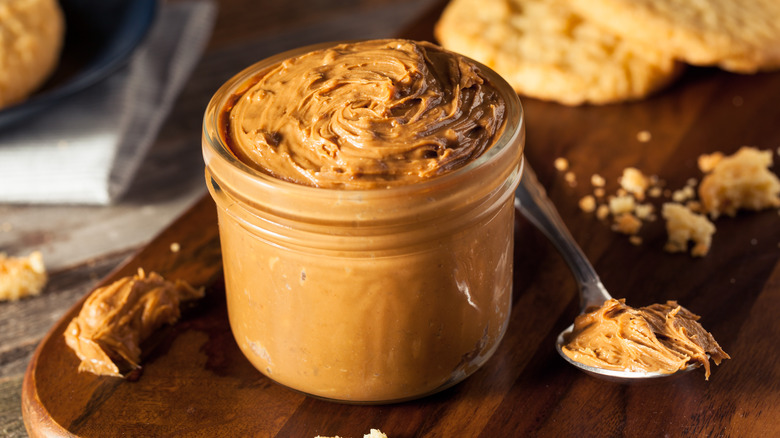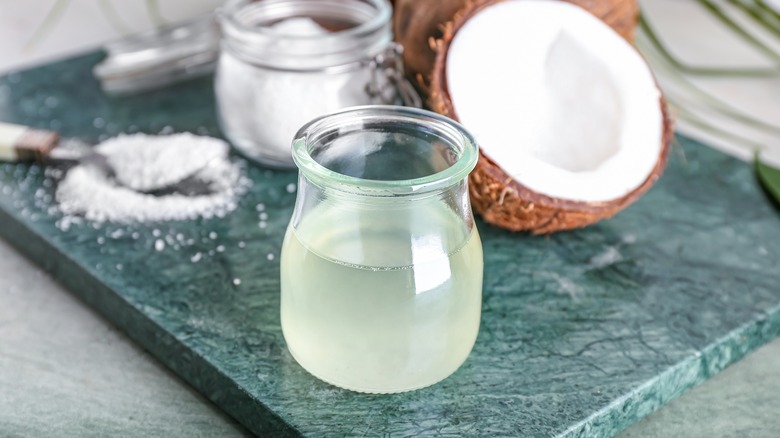Give Cookie Butter The Thick Texture It Deserves With This Ingredient Swap
Cookie butter is a versatile dessert spread that pairs well with just about anything it touches, from pancakes and waffles to oatmeal and toast to ice cream sundaes and yogurt parfaits. While the sweet paste can be found on grocery store shelves (Trader Joe's Cookie Butter is a favorite of many), you can easily craft a batch at home. One of the key factors in achieving the spread's signature richness is your choice of fat. Refined coconut oil, in particular, emerges as cookie butter's star ingredient, as it imparts a thicker consistency than unrefined coconut oil or traditional dairy butter.
The process of making homemade cookie butter starts with your favorite cookies, and after the addition of sweeteners and fragrant spices, it ends with a reliable fat source. While many cookie butter recipes call for traditional butter, refined coconut oil offers additional advantages: It's flavorless and has a high smoke point. These factors contribute to a more viscous, sustainable, and delectable final product.
Refined coconut oil, which is processed to remove impurities, ensures a neutral base that allows the cookies' iconic flavors to shine through. The result is a cookie butter that encapsulates the essence of your chosen treats without the interference of coconut undertones. In contrast, unrefined coconut oil may introduce an overtly coconut-y taste and aroma, which, of course, won't suit all palates.
Refined coconut oil creates a better, thicker cookie butter
You probably want your cookie butter to last a while (if you can resist eating it all in one sitting, that is). Using refined coconut oil will ensure your homemade spread maintains its ideal consistency. Since coconut oil solidifies at temperatures below 76 degrees Fahrenheit, your cookie butter can sustain its coveted thickness, even when sitting in the jar at room temperature. This unique property contributes to the base's firm, sleek texture, which is only enhanced when combined with crushed cookies. Speaking of which, feel free to experiment with a variety of treats; try making cookie spreads from Biscoff, Oreos, gingersnaps, snickerdoodles, shortbread, or even vanilla wafers.
The absence of water content in refined coconut oil is also fundamental in cooking and baking. In contrast, cream-based butter contains water, which can result in a softer, less stable cookie butter that's prone to separating or melting. Refined coconut oil, which is naturally water-free, allows the spread to retain its structure over time, resulting in a perpetually velvety consistency. The ingredient's stability contributes to a dense, wholesome cookie butter that can complement any number of indulgent treats.

